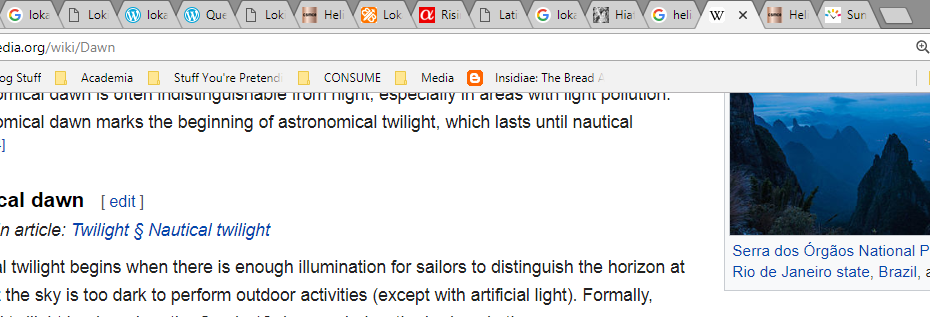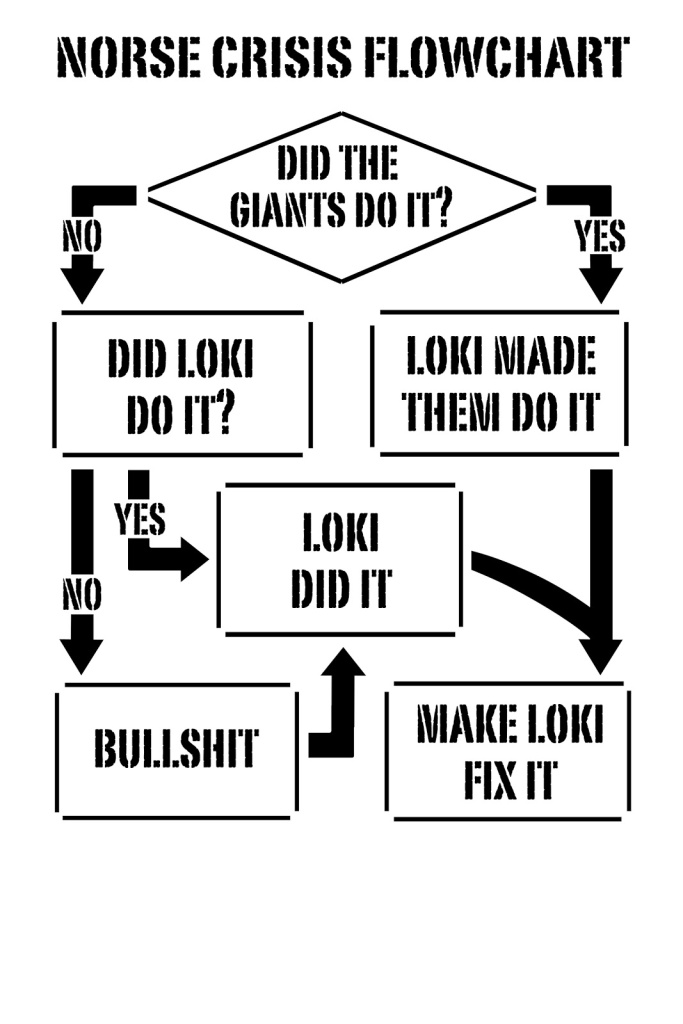I used to act. As a result, I hate acting. Hate fake-it-til-you-make it. Hate playing the part. Hate rote actions being done “just because.”
But ritual always involves a certain amount of pageantry, and doing specific actions simply because history and trial and error have borne out that it’s the thing to do.
It’s easy to understand why pre-planned shows of devotion don’t seem to make much sense. You can’t pull religious ecstasy out of a can. It doesn’t work like that. It definitely seems like it would make more sense to wait for these spontaneous experiences, and take them as they come.
Right?
So how can we approach ritual, and accept the way it functions, without feeling like we’re faking something?
Understand the Why
Think about your birthday. Getting gifts is a standard thing, at least when you’re younger. They’re not spontaneously given, they’re given to you because on that day you’re special and that’s what they’ve learned to do. People are commemorating you successfully living through the year, and giving you something nice to congratulate you for it. And then everyone sings a song and eats some cake.
That is literally a ritual!
In that situation, you’re the important figure being celebrated. Gifts are offerings. And then there’s socializing and feasting.
Religious ritual is the same. Except instead of the birthday boy or birthday girl, you’ve got a deity. Instead of presents and well wishes, you’ve got offerings. And instead of the birthday song, you’ve got group prayer in the form of a blot. Or Sege. Or whatever the equivalent term is in your particular path.
It is normal human behavior to ritualize events. The passage of time, births and deaths, the divine, and forces we have a hard time wrapping our head around are easier to understand and approach if we have a structured and tangible representation of it.
You have your birthday whether there’s a party or not. But it feels more “real” with some kind of activity to mark it. I know that I have trouble processing that I’ve aged if I don’t mark it with something special. I also know I’m not alone in that.
That’s the purpose ritual serves.
Embrace Structure
It is very, very hard for me to do something if I don’t know the “correct” way to do it. I take tasks handed to me very seriously, and I like to do things in a proven way. Sometimes with a twist, but I need a frame of reference before I work. It’s hard to take a calculated risk if you don’t know what you’re even calculating.
That’s not a big deal when it’s cooking dinner or doing busywork. But when it comes to dealing with higher powers, the lack of structure can be terrifying. Knowing that there are exact rules also helps prevent any risk of a boundary violation. Ritual, in a way, serves the role of etiquette when dealing with higher powers.
When you are shy, and new, especially in a group setting, ritual lets you know exactly what to do and what not to do. And knowing these things can actually be immensely freeing.
Don’t Underestimate the Social Component
The best rituals I’ve ever been a part of were conducted with about twenty of my closest friends. I am generously including strangers, since they’re just friends you haven’t met yet.
I really can’t emphasize the importance of the social aspect of ritual enough. When you are by yourself, or your only accompaniment is gods, you’re very limited in the feedback you can receive over your actions. It’s a toss-up whether gods will give you feedback, and we’re not particularly accurate judges of our own behavior. I’m speaking from a place of anxiety. I am a terrible judge of how I come off to people.
By contrast, when surrounded by people who are committed to giving you helpful feedback, eager to guide you in your work for the gods and community, you have a far better idea of whether your behavior is serving the right purpose.
And on top of all that, knowing that you’re in a setting where everyone is either familiar with what you’re doing, or at least respectfully curious, can be a massive relief. Nobody is going to think you’re weird. Nobody is going to judge you.
You’re allowed to relax.
Let Go
Most rituals I’ve been in involve some sort of pre-ritual that serves the purpose of grounding, and easing people into a slightly altered mental state. This is important, because it helps you feel more open, more connected, and more flexible about what will happen.
Ritual, in practice, is far less scripted than it would seem. Something will always go just a little bit wrong. Candles and torches don’t light, you get splashed with the libation, someone drums off beat, or intones the wrong rune.
It’s whatever.
You’re not doing ritual to be perfect, you’re doing it to be nice. It’s about getting people together to remind the gods they’re loved, to enjoy community with your coreligionists, and to–hopefully–put you in the state of mind where this is easier to achieve.
And maybe you’ll still feel like a weirdo for doing it! But hopefully you won’t feel pretentious. Because pretentiousness is about fluffing up our egos, and that’s not what ritual is for. Ritual will not make you pretentious.
And, hopefully, you’ll feel at peace with being weird. Because what group ritual is great for, in terms of the mundane, is reminding you that you are not alone in that weirdness.





